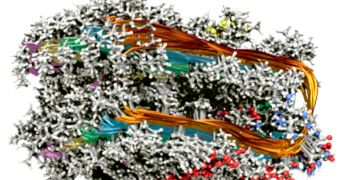Reading, solving math problems, doing puzzles and many other activities that stimulate cognitive processes help prevent the development of a form of neurodegenerative dementia called Alzheimer's disease, researchers at the University of California in Berkeley (UCB) argue in a new study.
Making a lifetime habit out of these activities helps the brain stay in shape, and reduces the chances of beta-amyloid proteins creating deposits among neurons. This study has significant implications for the young generation, especially considering the current state of affairs.
Alzheimer's is extremely widespread in developed nations, where the average age of the population has been increasing for decades. In the United Kingdom, for instance, statisticians expect to see seniors making up about half the population within a couple of decades at most.
Considering the incidence of dementia among this age group, developing methods of preventing the condition is rapidly emerging as a major public healthcare priority. Since the best defense is prevention, studies such as this one hold the greatest promise.
What's interesting about this protective effect is that it comes from people doing things they love, not what they're told to by doctors, such as is the case with diets, for example. Exactly how such activities prevent amyloid build-ups in the brain is not entirely known.
“These findings point to a new way of thinking about how cognitive engagement throughout life affects the brain,” explains UCB Helen Wills Neuroscience Institute / School of Public Health professor Dr. William Jagust. He is also based at the DOE Lawrence Berkeley National Laboratory (Berkeley Lab).
“Rather than simply providing resistance to Alzheimer’s, brain-stimulating activities may affect a primary pathological process in the disease,” adds the expert, who was also the principal investigator on the new research.
“This suggests that cognitive therapies could have significant disease-modifying treatment benefits if applied early enough, before symptoms appear,” he goes on to say, adding that no less than 5.4 million people in the United States alone are currently living with Alzheimer's disease.
Details of the new study appear in the January 23 issue of the medical journal Archives of Neurology,
Researchers argue that amyloid proteins start building up in the brain long before mild cognitive impairment (MCI) – a precursor of Alzheimer's disease – starts exhibiting its first symptoms.
This could help explain why engaging in stimulating hobbies, such as reading, writing, exercising or playing games can have such an effect in the long run. Drinking a glass of wine or a cup of coffee daily was also proven to decrease dementia risks.

 14 DAY TRIAL //
14 DAY TRIAL //